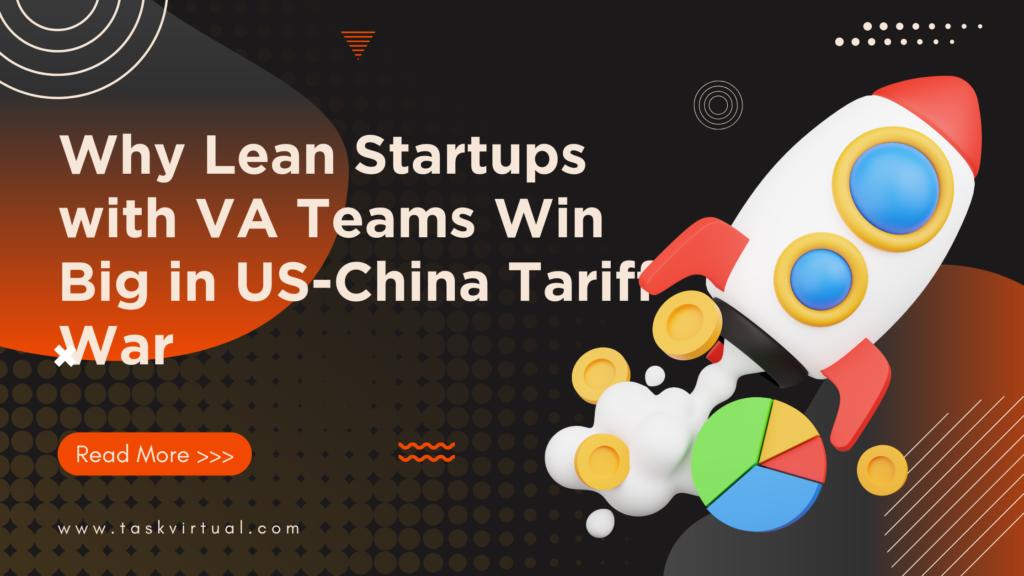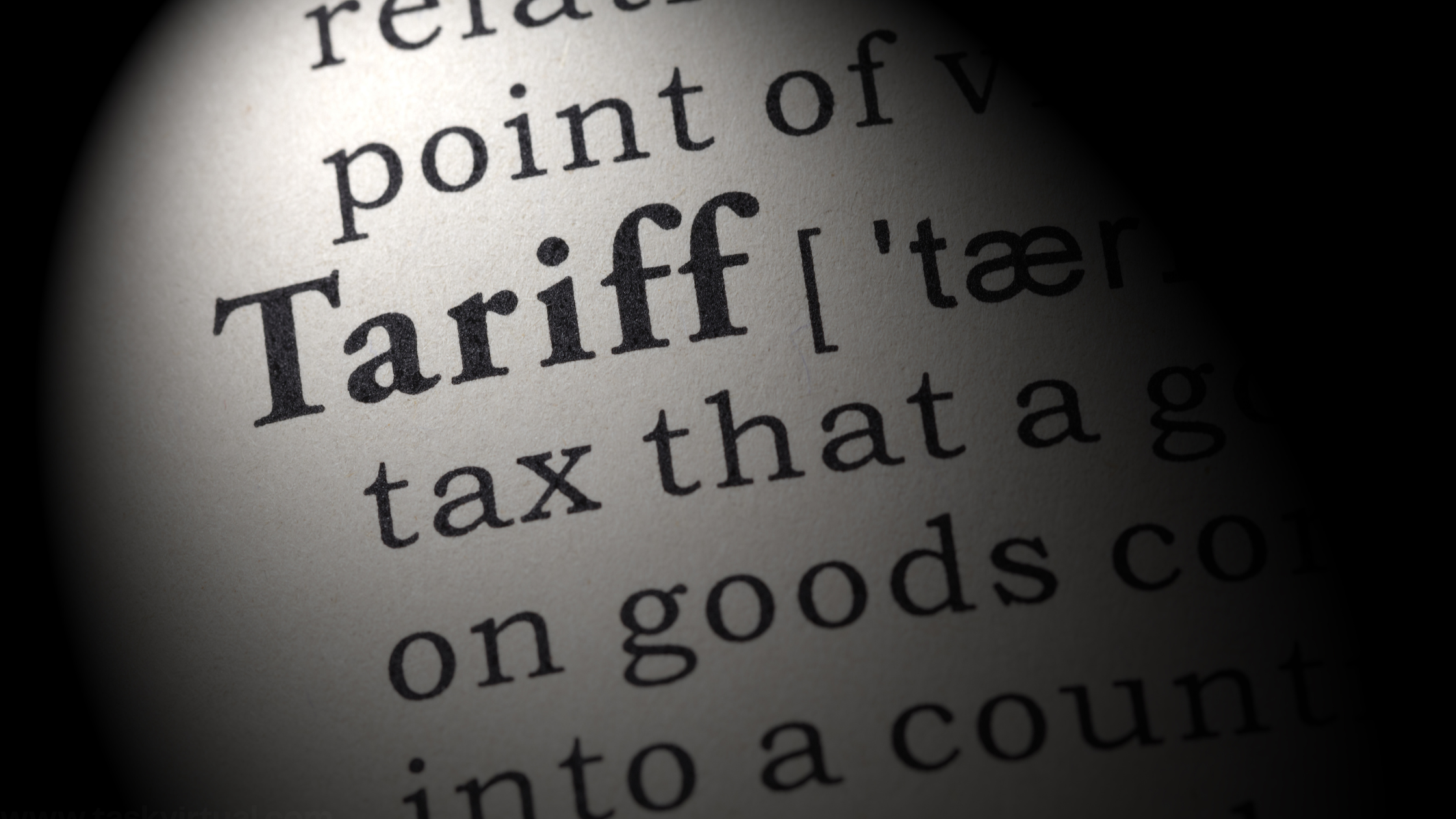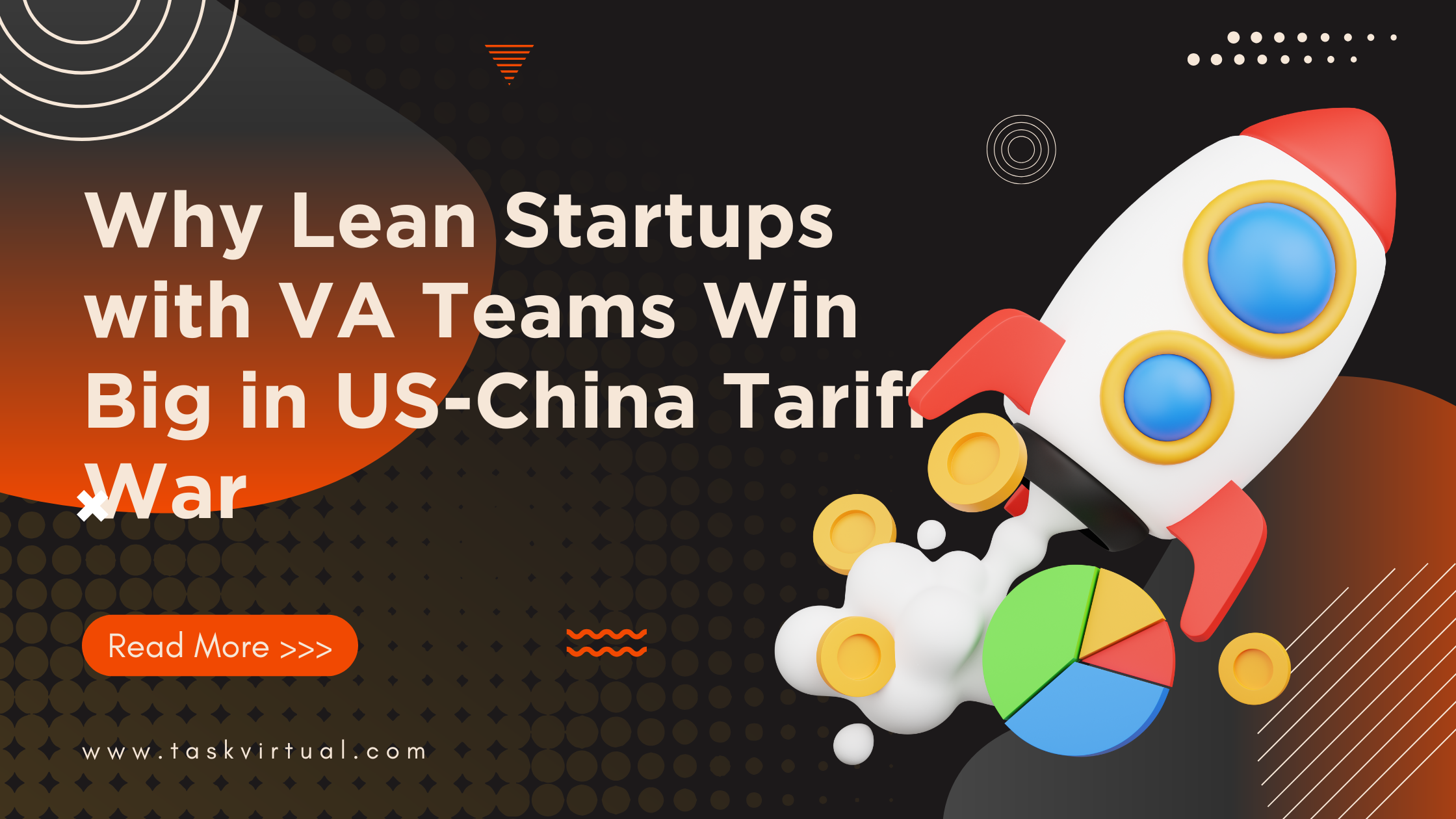
Why Lean Startups with VA Teams Win Big in US-China Tariff War
As the Trump tariffs 2025 agenda continues to unfold, the ripple effects of the renewed US–China trade war are being felt across industries. Startups, often seen as the underdogs, are emerging as unlikely winners—especially those powered by lean, virtual teams. In contrast to bloated corporations weighed down by overhead and bureaucracy, these nimble organizations are leveraging virtual assistants (VAs) and remote-first models to outmaneuver the turbulence of international economic conflict.
Here’s why remote-enabled startups are not just surviving—but thriving—in today’s global tariff battlefield.
The Tariff War: A Struggle for Big Business

The US–China trade war, which intensified under President Trump, has once again come into sharp focus with the announcement of new tariffs in 2025. Trump announces tariffs against Canada, Mexico, and China as part of a broader protectionist strategy, citing unfair trade practices and intellectual property theft.
In retaliation, China retaliates against Trump’s tariffs with counter-tariffs on US goods, targeting over $110 billion worth of American exports. These tit-for-tat measures have created uncertainty, supply chain disruptions, and increased operational costs—particularly for large multinational corporations reliant on global manufacturing.
These corporations often struggle with inflexible infrastructure and excessive payroll commitments, making it difficult to pivot or restructure quickly in response to rapidly changing policies.
Lean Startups: Agile by Design
Startups and lean organizations operate with one intrinsic advantage: flexibility. By adopting a virtual-first approach, they can scale up or down instantly, bypassing the burdens of physical office spaces, bloated HR processes, and fixed salary overheads.
1. Virtual Teams = Lower Costs
According to Outsource Access, companies that hire virtual assistants save up to 78% in operating costs. This includes savings on office space, hardware, employee benefits, and taxes.
MyVirtuDesk notes that companies can save as much as $60,000 annually by leveraging VAs, a significant buffer in times of economic uncertainty.
2. Productivity Gains
Remote work isn’t just a cost-saver—it’s a productivity booster. Studies cited by Apollo Technical show that 77% of remote workers report increased productivity, and remote workers are on average 13% more productive than their in-office peers.
This is critical when reacting to rapid-fire policy changes, like the recent Trump China tariff escalations.
Real-World Impacts: How Virtual Teams Provide a Buffer

The US–China tariff war doesn’t just hit exporters—it squeezes every link in the chain, from sourcing to delivery. Startups using virtual assistants mitigate these issues in several ways:
1. Dynamic Resource Allocation
Instead of committing to full-time employees, lean startups can assign temporary VAs to specific roles like logistics coordination, supply chain analysis, or customer support. This flexibility allows founders to redirect resources based on where trade friction hits hardest.
2. Diversified Talent Pools
Unlike large firms dependent on region-specific operations, virtual teams allow startups to source global talent. As Trump tariffs against Mexico, Canada, and China shake North American trade, startups can instantly pivot to professionals in unaffected markets.
3. Real-Time Strategy Adaptation
A lean startup with access to remote analysts, financial VAs, and digital marketers can monitor trade developments like the Trump Mexico-Canada China tariffs and swiftly adapt pricing, sourcing, and marketing strategies accordingly.
Why Bloated Orgs Are Struggling
Larger corporations—particularly those with vast HR departments, legacy systems, and sprawling physical infrastructure—are less resilient in the face of international trade disputes.
They face:
1. Sluggish Decision-Making:
Multilayered approval chains hinder fast pivots.
2. High Operational Costs:
Office leases, full-time staff, and administrative expenses add financial strain during downturns.
3. Inflexibility in Workforce:
Downsizing is often slow, expensive, and damaging to morale.
In contrast, startups using VAs can easily reassign roles, pause contracts, etc and easy mental pressure.
The Role of TaskVirtual in Startups’ Tariff Strategy
Among the leading VA providers helping startups thrive amid tariff wars is TaskVirtual, a global virtual assistant service with a track record of excellence.
1. Expert Consultation on AI-Efficient Scaling
TaskVirtual offers expert guidance to streamline tasks through AI-powered solutions, improving browsing, market research, and logistics planning—an edge in monitoring shifts in Trump tariffs 2025 and adapting proactively.
2. Affordable and Scalable
TaskVirtual’s pricing ranges from just $3.12/hour to $14.99/hour, making it one of the most budget-friendly options for growing businesses in tariff-sensitive industries.
3. Client Satisfaction
With 364 positive reviews and a 4.7-star rating on VA reviewing platforms, TaskVirtual is widely trusted by startups seeking to scale affordably and intelligently.
Whether it’s researching how China retaliates against Trump’s tariffs or managing product listings affected by tariffs, TaskVirtual’s VAs provide critical support.
The Future: How Tariff Politics Will Keep Fueling VA Demand

The geopolitical tensions underpinning the trade war show no signs of easing. The 2025 trade landscape suggests prolonged economic friction, with further Trump tariffs expected if his administration continues its aggressive trade stance.
As more entrepreneurs shift to remote-first models, virtual assistants will become indispensable—not only as support staff but as strategic contributors to international growth and compliance.
Startups that embrace this model will be better equipped to deal with:
-
New waves of tariffs from or against China, Mexico, and Canada
-
Disruptions in global supply chains
-
Inflationary pressures triggered by trade restrictions
Conclusion: The New Normal Requires a New Team Model
In an era where Trump announces tariffs against Canada, Mexico, and China in quick succession, businesses must remain agile. For startups, the answer lies not in more employees or bigger buildings—but in smarter, leaner teams equipped to adapt on the fly.
Virtual teams are no longer a luxury—they are the smartest defense against trade uncertainty.
With the right virtual assistant partner, such as TaskVirtual, startups can continue to outmaneuver slower competitors, stay profitable, and remain focused on growth—even as tariff battles escalate.






